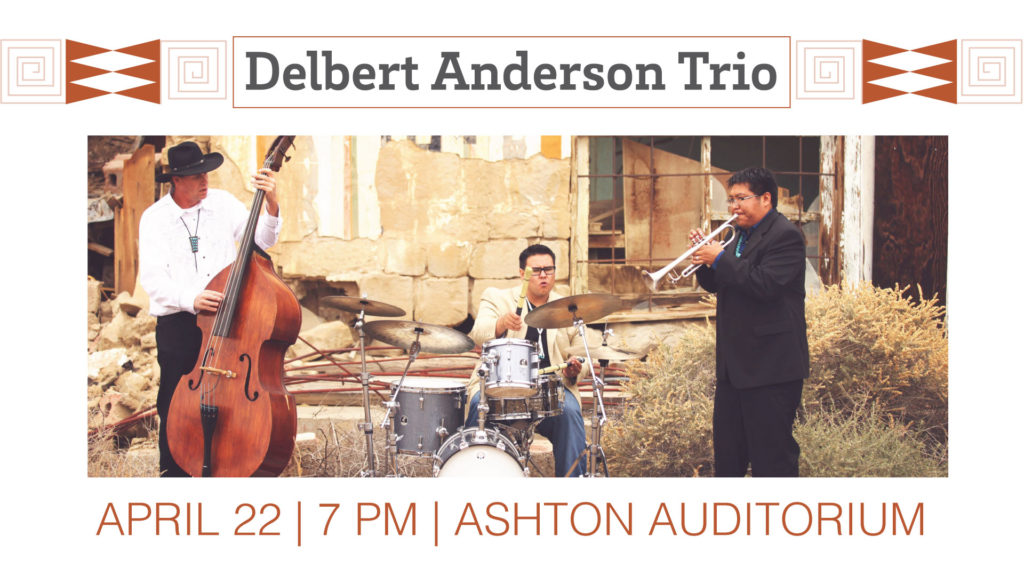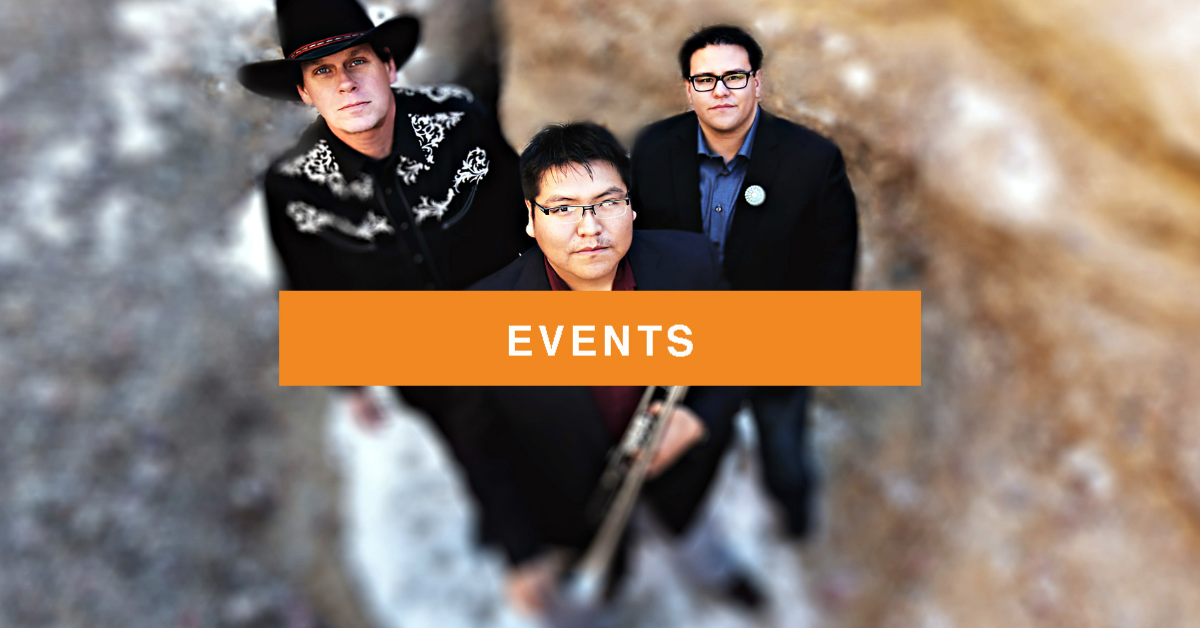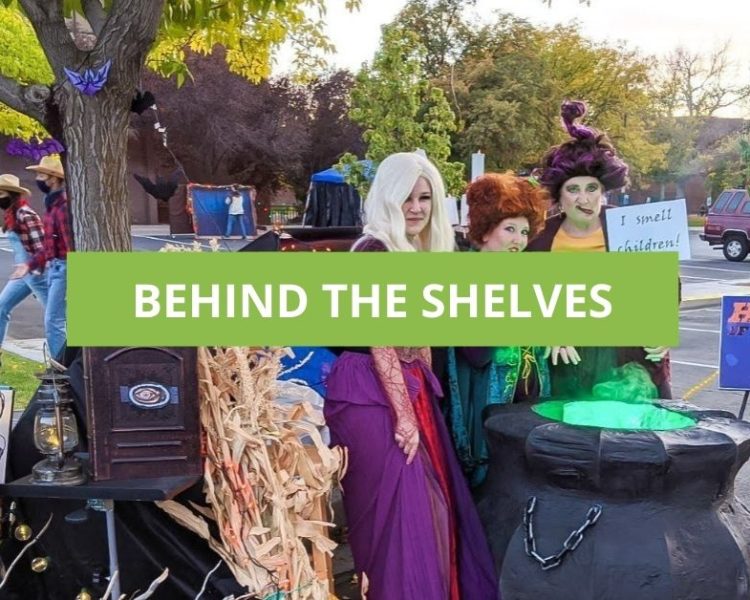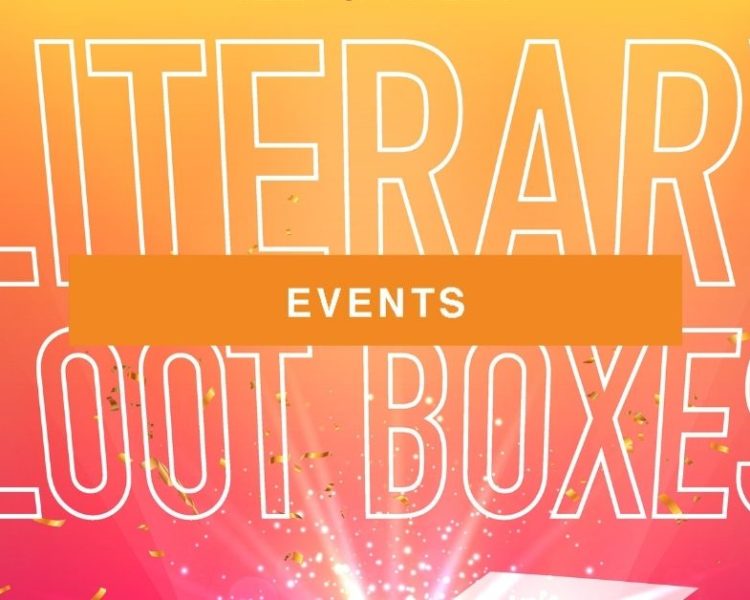
Our final spring concert of 2021 will be held in the Library Hall this week and will feature the Delbert Anderson Trio. Formed by award-winning jazz trumpeter and Navajo tribe member Delbert Anderson, this instrumental ensemble is inspired by ancient Native American melodies fused with jazz, hip hop, funk, and soul. The trio is composed of Anderson on trumpet, Nicholas Lucero on drums, and Mike McCluhan on bass. Before coming to the concert, enjoy this interview by Orem Library with the trio’s founder, Delbert Anderson.
Orem Library Interview with Delbert Anderson
Your performances include a diverse range of styles and genres. What do all of these different types of music have in common?
I believe one thing in all the different genres and styles we use is improvisation. Improvisation is a big deal in jazz, funk, Latin, and hip-hop. Like every piece of music, no matter the genre and style, they all tell a story.
Why do you involve such a wide range in your performances?
Two main reasons: first, we have four members in our group and we each bring our personal influences to our music. Our ensemble automatically fuses by simply being in a band together. Second, we want our music to be universal in the sense that we create music that is palatable for everyone—children, teens, adults, and elders.
What advice do you have for aspiring musicians?
Musicians should learn investing and studying the business of the arts industry. If your goal is to be supported by your art, you need to learn business, networking, marketing, and be a part of every professional development class you can get yourself into. I would say business is 50% of what a self-supported artist should be doing.
Who are some of your heroes?
My heroes are my parents, my wife and children, my middle school teacher Janet Isham, and three of my college instructors—Dr. John Kennedy, Dr. Christopher Beaty, and Dustin Seifert. All of these people had a great impact in my life and influenced me to continue in the arts beyond measure.
Where do you draw inspiration?
For the past three years, I have been pulling inspiration from the Diné Spinning Songs—traditional yet social songs teaching manners. The rest of the group also contributes their personal influences of musicians and favorite genres.
Why do you think music has remained such an important part of human life?
Music is one way of self-expression. Music certainly helped our African-American ancestors during one of America’s worst times in history. Music was known for liberating and the utilization of improvisation was actual healing for many. Although music is not always used in this manner, our bodies know and can feel healing when we hear it. We may think we know music with our minds, but our bodies feel and know it better than we think.
If you could perform with anyone, living or dead, who would you choose?
I would have loved to perform with Joshua Redman, Michael Brecker, Roy Hargrove, and Lee Morgan!
Tell us a little about your musical history. How old were you when you began? Did you always love it?
When I was in 4th grade and probably around 10 years old, I watched a trombone player play with no music sheets in front of him. It was the most inspiring thing I had ever seen. The next day, I immediately chose my instrument and tried to copy what the trombone player did. I was unsuccessful, but I knew it would only be a matter of time before I would be able to play my trumpet. I have always loved playing. It’s one thing in my life that I have never quit since the 4th grade.
What types of music, performers and composers resonate with you?
I love 90s rap music. I like the beats and the rawness of the tracks. I love to watch live music, particularly the drums and how they seem to always interact with everyone while maintaining a beat. I also love classical symphony compositions. Symphonies can create some of the best sounds in this world with the right composers. I have a great amount of respect for them.
The Delbert Anderson Trio will be performing in the Library Hall’s Ashton Auditorium on Thursday, April 22, 2021 at 7 pm. Due to COVID-19 restrictions, space is limited and free tickets are required. Social distancing and masks are required at all times. This performance received support from OnStage Utah, Utah Arts and Museums, Advancing Indigenous Performance, WESTAF (the Western States Arts Federation), and the National Endowment for the Arts.




